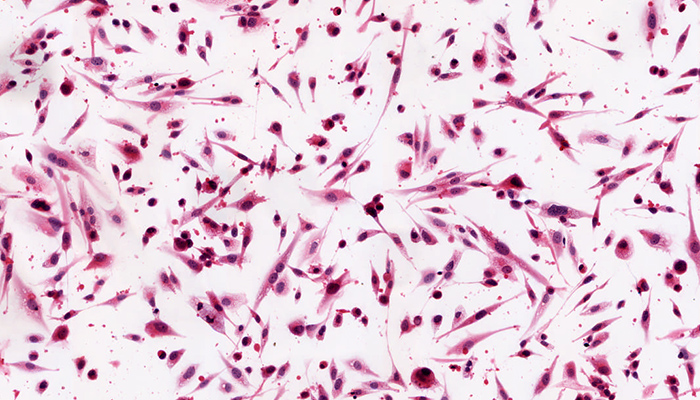
Researchers at the Queensland Brain Institute and QIMR Berghofer Medical Research Institute have identified a protein which plays a key role in brain cancer, opening the door to potential new treatments.
Scientists found that the NFIB protein, which regulates brain development before birth, can also affect the growth of brain cancer.
Professor Linda Richards said that low levels of NFIB protein were correlated with poor survival in the most deadly form of brain cancer – glioblastoma (GBM).
“Crucially, our study identified that increasing the level of NFIB in human brain cancer cells stopped the cancer from growing,” Professor Richards said.
“This in turn opens the door for long-term research into whether we can prevent the cancers in the first place, by maintaining healthy NFIB levels.”
Brain cancer linked to protein that regulates brain development
The discovery stems from decades of work in Professor Richards’ laboratory on the function of NFIB during brain development.
“In early brain development, this protein plays an important role in determining when cells stop proliferating, and instead become mature cells. It keeps the number of cells formed in the developing brain in check. We therefore wondered whether NFIB might function in the same way in brain tumours.” Professor Richards said.
Professor Richards recognised the link with brain cancer and teamed up with QIMR Berghofer’s Professor Andrew Boyd and Dr Brett Stringer to investigate further.
Drug treatment slowed the growth of brain cancer
Dr Stringer found that levels of NFIB were highest in low-grade glioma and lowest in the most aggressive form of the cancer.
“Crucially, we found that the level of NFIB present in the brain tumour correlated directly with a patient’s survival. We also found that increasing the levels of NFIB, using drugs that are already available, slowed the growth of half of these brain cancers,” Dr Stringer said.
Glioblastoma is the most aggressive form of malignant brain tumour. About 800 Australians are diagnosed with this cancer each year. Patients survive an average of 14 months from the time they are diagnosed.
This research was published in the journal Oncotarget and funded by Cancer Council Queensland, Brain Foundation, the National Health and Medical Research Council and the Cure Brain Cancer Foundation.
Media: QBI Communications, communications@qbi.uq.edu.au.



